- Home
- Sarah Zettel
Assassin's Masque (Palace of Spies Book 3)
Assassin's Masque (Palace of Spies Book 3) Read online
Contents
* * *
Title Page
Contents
Copyright
Epigraph
Prologue
Chapter One
Chapter Two
Chapter Three
Chapter Four
Chapter Five
Chapter Six
Chapter Seven
Chapter Eight
Chapter Nine
Chapter Ten
Chapter Eleven
Chapter Twelve
Chapter Thirteen
Chapter Fourteen
Chapter Fifteen
Chapter Sixteen
Chapter Seventeen
Chapter Eighteen
Chapter Nineteen
Chapter Twenty
Chapter Twenty-One
Chapter Twenty-Two
Chapter Twenty-Three
Chapter Twenty-Four
Chapter Twenty-Five
Chapter Twenty-Six
Chapter Twenty-Seven
Chapter Twenty-Eight
Chapter Twenty-Nine
Chapter Thirty
Chapter Thirty-One
Chapter Thirty-Two
Chapter Thirty-Three
Chapter Thirty-Four
Chapter Thirty-Five
Chapter Thirty-Six
Chapter Thirty-Seven
Chapter Thirty-Eight
Read More from the Palace of Spies Series
About the Author
Copyright © 2016 by Sarah Zettel
All rights reserved. For information about permission to reproduce selections from this book, write to [email protected] or to Permissions, Houghton Mifflin Harcourt Publishing Company, 3 Park Avenue, 19th Floor, New York, New York 10016.
www.hmhco.com
Cover photograph © 2016 by Natalie Shau
Cover design by Christine Kettner
LIBRARY OF CONGRESS CATALOGING-IN-PUBLICATION DATA IS AVAILABLE
LCCN: 2015012289
eISBN 978-0-544-07373-9
v1.0116
Thanks to my agent, Shawna, and the members of the Untitled Writers Group.
Prologue
IN WHICH OUR HEROINE MAKES A FEW SUMMARY REMARKS.
I trust those readers not yet familiar with these chronicles will permit me the liberty of making my own introduction. My name is Margaret Preston Fitzroy, though I am more familiarly known as Peggy. Publicly, I am the daughter of Jonathan and Elizabeth Fitzroy and a maid of honor to Her Royal Highness, Caroline, Princess of Wales. Privately (or at least, less publicly), I am a confidential agent in the service of the Crown.
Until recently, I was also an orphan. I lived with my dour uncle, Sir Oliver Trowbridge Preston Pierpont, and my less dour, but far more nervous, Aunt Pierpont, née Delphine Amilee Carlton. Fortunately for me, this uninviting pair was provided with a daughter of about my own age, Olivia, who became my best friend, despite her penchant for keeping flocks of small, fat, excessively fluffy dogs.
My residence with uncle, aunt, cousin, and dogs halted abruptly when I refused to honor the betrothal my uncle had contracted to a youth named Sebastian Sandford. I had intended to do my best by the arrangement until Mr. Sandford attempted to help himself to my virginity prior to our marriage, without my consent.
Presented with this information, my uncle displayed his sympathy for my plight by throwing me out into the street. This being an unpromising state of affairs for any young lady, it caused me some consternation. Fortunately, however, the gentleman who would become my patron and tutor in all matters related to the craft of the confidential agent and courtier had recently introduced himself. At that time he called himself Mr. Tinderflint. It was some time before I discovered that this overdressed, easily flustered, and apparently foolish “Mister’s” right name and title were Hugh Thurlow Flintcross Gainsford, Earl Tierney.
Under the auspices of Mr. Tinderflint and Certain Other Persons, I found myself impersonating a maid of honor to Her Royal Highness, Princess Caroline. I discovered a forged letter, which led to a series of Nefarious Plots with Foreign Implications designed to topple the House of Hanover from the throne of England and set up the pretender James Edward Stuart as king.
It was very much the fashion among our English aristocrats to become out of sorts with the individuals who wore the crown of England. Therefore, on a regular basis, sundry persons would organize their armies with the intention of changing out one monarch for another. This happened to Charles the First, and after him the Lord Protector, and, more recently, James the Second. James, being more prudent, or perhaps just faster, than Charles, managed to get away to France before he was deprived of his head as well as his crown.
Once James the Second fled, William and Mary Stuart, and then Anne Stuart, took the throne. Anne did not leave any living heirs, so the English nobility was faced with a weighty decision: to allow the stubbornly unrepentant—and Catholic—James to resume the throne, or to find some entirely new (and Protestant) branch of the monarchy to fill his post. Opinions were expressed, plots were hatched, but all to no avail. It was decided that the ruling family of Hanover was close enough kin to the dying Queen Anne to fill the bill. So it was that the Elector of Hanover was offered the throne, which he accepted. In so doing, he became our current king, George.
As may be imagined, this turn of events left James Stuart (formerly James the Second) somewhat put out. He proceeded to express his displeasure through a series of (unsuccessful) invasions, which continued at regular intervals until he died. His son—the previously mentioned James Edward Stuart—proved himself a model of filial piety, and continued in the family tradition of attempting to seize the throne. As may be imagined, these efforts spawned an ongoing series of plots and plans on the part of those Stuart partisans who had by now come to be known as Jacobites. These plots happened to involve the Sandford family—most particularly Sebastian Sandford’s father, Lord Lynnfield, and his older brother, Julius.
The plots also, much to my surprise, involved my dour Uncle Pierpont.
Rebellion, it must be understood, is an expensive business. It requires careful, discreet men to handle its money. And as Uncle Pierpont owned a private bank, the Sandfords and others funneled a great deal of money through that bank and into the Jacobite cause. This, while lucrative for the House of Pierpont, was also treasonous. This treason was compounded by Uncle Pierpont’s acquiescing with the Sandfords’ insistence that I honor my engagement to Sebastian Sandford.
It may be therefore understood that I experienced a great deal of satisfaction in exposing the Sandfords as Jacobite Plotters and Nefarious Persons. That satisfaction, however, arrived only after the Sandfords engaged in a spirited attempt to deprive me of my life.
Although I assure my readers my efforts were considerable, my survival was much aided by the abrupt and unexpected return of my father, Jonathan Fitzroy. He had not been in his grave as I’d thought. He had instead been in France, which some might declare to be worse. When I was still a child, a royal command had sent him to ferret out the plans of the would-be Stuart king, James III. While my father spied upon James and his allies, my mother, Elizabeth, also unbeknownst to me, conducted similar investigations among London’s drawing rooms and royal court.
Those few who knew my parents’ profession considered it unnecessary to inform a small child her parents were spies. Therefore, I was left to conclude that my father had simply abandoned me. I was, of course, delighted to find this was not the case. At the same time, adjustment to the ownership of a father of any sort—let alone such a dashing and unpredictable character as Jonathan Fitzroy—was proving to be more complex than I woul
d have imagined.
For a time, I was able to soothe this agitation by happily looking forward to a future entirely devoid of Sandfords. The senior member of that clan did not survive his particular brush with Adventure. I confidently assumed the family’s remaining branches would be quickly pruned by the blade of the King’s Justice. After all, the old lord had been a smuggler, traitor, kidnapper, murderer, and cad, and there could be no doubt that at least the elder son, Julius, partook of these delightful activities as well.
Julius, however, now held the title of Lord Lynnfield, and the possession of a minor title is a great shield and bar to prosecution, even when it comes to treason.
It was also the case that much of the proof against the Sandfords had been destroyed.
When Julius Sandford was taken to the palace to be questioned, Uncle Pierpont decided he did not wish to be arrested, charged, and hanged, with his goods and chattels confiscated while his wife and daughter were reduced to irredeemable disgrace and poverty.
This was the true and ultimate reason behind the house fire in St. James’s Square, which, not coincidentally, started in the book room, where my uncle kept the majority of his private papers. He also kept himself there while it all burned to ash.
So it had come to pass that while I was poor and fatherless no longer, that coldest of states had fallen squarely upon my cousin, Olivia. Olivia responded to this reversal with all the grace and fortitude that I had so frequently observed in her throughout the years of our friendship.
That is to say that, by the day of her father’s funeral, it was becoming increasingly evident that my dearest cousin was ready to explode.
CHAPTER ONE
London, October 1716
IN WHICH OUR HEROINE SUPERVISES A PERIOD OF GENERAL MOURNING AND IS UNEXPECTEDLY REUNITED WITH CERTAIN ACQUAINTANCES.
In order to place events before my readers in proper order, I fear I must begin at that most solemn of affairs—my uncle’s funeral reception.
“How terrible it all is for you, poor child!” The latest woman in black to arrive in our parlor caught Olivia’s face with her gloved hands and squeezed.
“Thank you for your sympathy,” murmured Olivia as she extricated herself. Olivia and I had rehearsed this and other useful phrases that morning as we laced each other into our stiff black dresses.
“Oh, poor Delphine! He was such a good man! You must be prostrate with grief!” The black-clad matron proceeded to squeeze my Aunt Pierpont’s hands with the same energy she had expended on Olivia’s face.
Funeral Custom does not require people to keep a polite distance. It does require those receiving such vigorous sympathy to show appreciation. My aunt therefore murmured some response I assume was polite, if only because I’d never seen Aunt Pierpont be anything but polite.
She looked nothing less than shattered.
Standing beside her mother’s chair, Olivia did not look shattered. Nor was she wan, drawn, or any other dolorous adjective generally deemed appropriate for such occasions. My cousin instead looked increasingly furious. I, therefore, wasted no time inserting myself into the conversation.
“May I offer you a cup of punch?” I kept my tone gentle and melancholy, leading the woman out of range of Olivia’s razor-sharp tongue. This was my chief funereal function—to keep Olivia from making unscripted remarks to the guests. Secondarily, I was to ensure no mourner was left without brandy punch, cake, cold meats, or someone with whom to talk while we all waited for the men.
Custom dictated that bereaved women could not walk with the hearse or attend the burial. Therefore, my father—or indeed, any gentleman off the street—could accompany Uncle Pierpont’s earthly remains from church to burying ground. However, my aunt, who was merely the one who had borne his children, managed his household, and stood by him through thick and thin, was required to sit in a parlor, dressed and veiled in unrelieved black to politely receive a crowd of ladies.
I set our most recent arrival milling among the others, who all conversed decorously on such pious topics as the splendor of the coffin.
All, that is, except one. Unfortunately, this one happened to be my late uncle’s mother.
“You’ve spent too much!” The Dowager Mrs. Pierpont stumped across the threshold from dining room to parlor, having consumed what was approximately her twentieth slice of ham. “And what is all this nonsense?” She swung her cane out and caught one of the lengths of plain black cloth that covered a mirror. The poor parlormaid, Dolcy, squeaked as if she’d been struck and ran to steady the looking glass.
I spared a selfish moment to be thankful that this woman was my grandfather’s second wife. My mother, Elizabeth, had been born of his first. This meant that the apparition crossing the parlor was, blessedly, no blood relation of mine.
Aunt Pierpont had no such consolation. This woman was her late husband’s mother, her own mother-in-law. She could not, therefore, be ordered off the premises or sent to bed without supper. My aunt’s remaining option was to clutch her black handkerchief more tightly and murmur, “I only wanted to do what is decent.”
Old Mother Pierpont snorted. “Decent? It’s frippery! My son needed no fripperies in life! What’s the point of throwing away good money on ’im now he’s dead? Never a lick of sense in you, Delphine,” she added, lowering herself carefully into the empty chair at my aunt’s side.
“But, dear Grandmother,” said Olivia from between clenched teeth, “you know we paid for none of it. You should be pleased with Mother for managing such a significant savings.”
Olivia’s words might have been laced with as much vinegar as sugar, but they were also the truth. My father, Jonathan Fitzroy, had neglected to serve advance notice of intent to return to my life. He had, however, most considerately returned with plenty of money at his command. This granted him the ability to pay for a funeral service, coffin, carriages, plumes, gloves, announcements, several men of assorted stations in black coats, black draperies with which to adorn the reception rooms, and all other such trappings deemed necessary by Custom for conveying the box from parlor to church to burying ground.
Whatever reply Old Mother Pierpont meant to make to my cousin’s rejoinder was cut off when the new footman opened the doors again. This time, he revealed a pair of richly but soberly clad young women whom I recognized—instantly and unexpectedly. In fact, had I been walking, I would have stopped in my tracks.
“Peggy,” murmured Olivia. “Aren’t those Molly Lepell and Sophy Howe?”
I nodded in mute response. Against all expectation, my sister maids of honor had arrived.
Molly, Sophy, and I were all ladies in waiting to Her Royal Highness, Caroline, Princess of Wales. Like myself, Molly was smallish and dark-haired with sloping shoulders and pale skin, making her the epitome of the maid-of-honor type. Together, Molly and I, along with Mary Bellenden, the fourth of our clan, might have been taken for sisters, or at least cousins.
This made sense in a rather unflattering way. Our chief function, after all, was to be ornaments to the court, and so we reflected the taste of those who selected the ornaments.
Sophy Howe was the exception to the type. She was the tallest of us by several inches and easily the thinnest, although thanks to expensive and well-constructed corsetry, she managed to appear well curved where it was considered to count the most. Her hair was quite golden. This shade, as near as I could tell, was entirely natural to her. The same could not be said for the pallor of her face. That exquisite mask of cosmetics and powder disguised a mind more calculating than any mathematician’s.
Molly stepped up first to our little receiving line. “Hello, Peggy.” She leaned in to brush her cheek against mine. “I couldn’t stop her, so I thought I better come as well,” she whispered as she let me go.
This was the final point of distinction between these two maids. Molly Lepell was my best friend at court. Sophy Howe may not have been my worst enemy, but she had applied for the post. Unfortunately, in these circumstances, I was almo
st as helpless to do anything about Sophy as my aunt was about her mother-in-law.
Almost, but not quite.
I stepped straight into Sophy’s path so that I might at once embrace her and breathe words of sisterly welcome into her delicate ear.
“Make any sort of show, ask any inappropriate question, and I will pitch you out on your derrière.”
Sophy hugged me back, hard. “Why, Margaret, one might believe something was not right here.”
I smiled as I pulled away and answered only with my eyes. Had Sophy been able to read that message, she would not have been able to repeat it in polite company.
I turned to my aunt. “Aunt Pierpont, here are Molly Lepell and Sophy Howe. They are also in waiting to Princess Caroline. Molly, Sophy, may I introduce my aunt, Lady Delphine Pierpont, and her mother-in-law, Mrs. Amelia Pierpont. I believe you know my cousin, Olivia.”
Aunt Pierpont glanced up. “So kind.”
Molly smiled softly and curtsied to my aunt, then moved on to make similar gestures toward Olivia.
Sophy took Aunt Pierpont’s hand. “Such a tragic accident. It must have been a horrible shock. How fortunate there were so few persons in the house at the time.”
Old Mother Pierpont thumped her cane. “Ha! Sloth, that’s what it was! Sloth and idleness. If those serving fools—not to mention these fool girls—had been home as they should, the thing would have been smothered in a trice! But oh, no! Our fine miss must be gadding about the town, getting up to who knows what fancy tricks!”
Sophy arched her perfectly plucked brows and turned to Old Mother Pierpont, clearly fascinated by this succinct assessment of the family’s misfortune.
“I’m sure Sir Oliver was a most diligent man,” Sophy said to Mrs. Pierpont. “And that everyone did her best. A simple mistake with a candle, no doubt . . . ?”
“Ha!” Old Mother Pierpont snapped, and thumped. “Candle! Not likely! But you’ll see.” She nodded sagely. “You’ll see what’s what when it all comes down to it.”

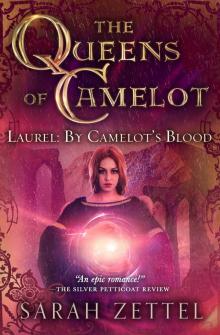 Laurel
Laurel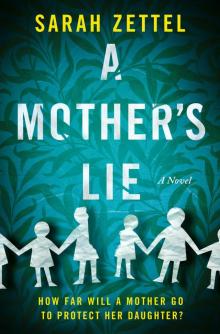 A Mother's Lie
A Mother's Lie Playing God
Playing God Dust girl
Dust girl Sword of the Deceiver
Sword of the Deceiver Let Them Eat Stake: A Vampire Chef Novel
Let Them Eat Stake: A Vampire Chef Novel Dust Girl: The American Fairy Trilogy Book 1
Dust Girl: The American Fairy Trilogy Book 1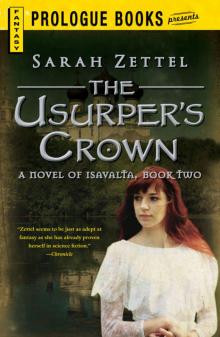 The Usurper's Crown
The Usurper's Crown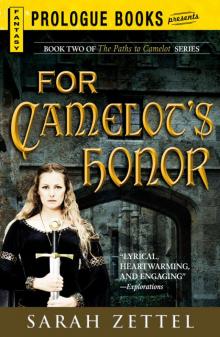 For Camelot's Honor
For Camelot's Honor Camelot's Blood
Camelot's Blood Kingdom of Cages
Kingdom of Cages Fool's War
Fool's War Golden Girl
Golden Girl A Sorcerer’s Treason
A Sorcerer’s Treason The Firebird's Vengeance
The Firebird's Vengeance A Taste of the Nightlife
A Taste of the Nightlife Assassin's Masque (Palace of Spies Book 3)
Assassin's Masque (Palace of Spies Book 3) Reclamation
Reclamation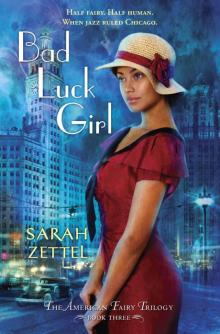 Bad Luck Girl
Bad Luck Girl Under Camelot's Banner
Under Camelot's Banner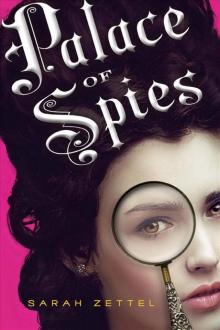 Palace of Spies
Palace of Spies Dangerous Deceptions
Dangerous Deceptions Quiet Invasion
Quiet Invasion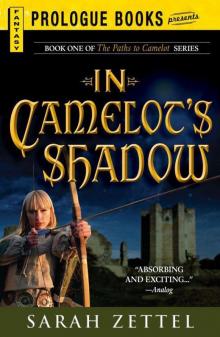 In Camelot’s Shadow: Book One of The Paths to Camelot Series (Prologue Fantasy)
In Camelot’s Shadow: Book One of The Paths to Camelot Series (Prologue Fantasy)